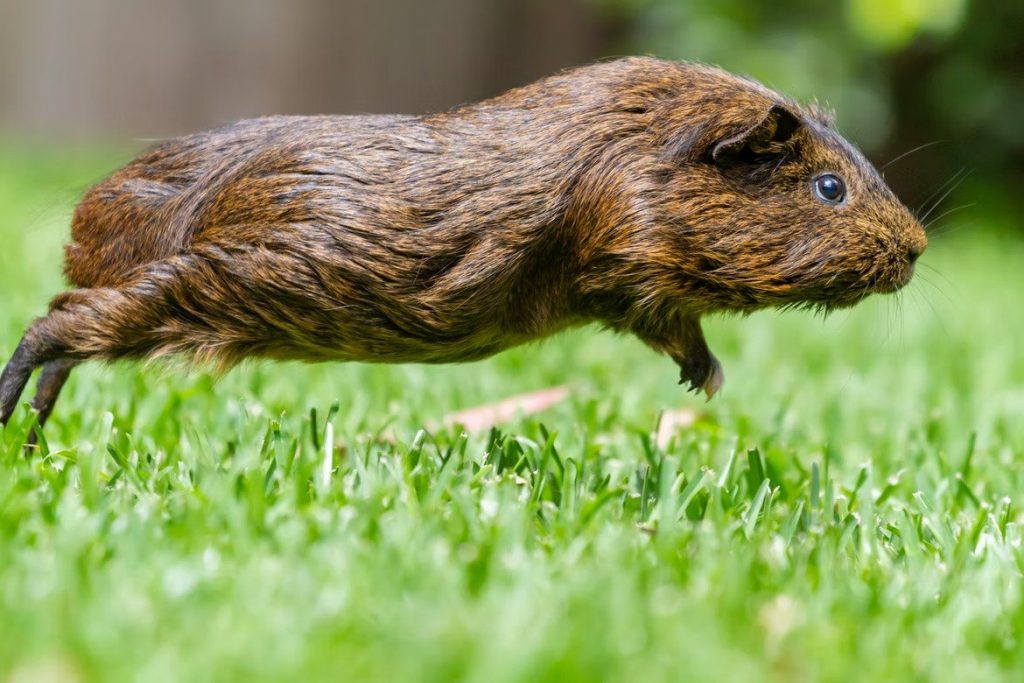
To ensure your piggie lives a healthy and long life, it is important to provide them with the ideal diet. Guinea pigs have specific nutritional needs and they could develop significant health problems if these needs are not met.
Diet
#1 Vitamin C
Guinea pigs are unable to synthesise vitamin C. Therefore, it is important for them to get it from the food they eat. Pet supply stores such as ours sell vitamin C supplements for your piggies.
#2 Pellets
Guinea pig pellets are formulated with vitamin C. Some other small animals such as rabbit pellets look similar but they do not contain vitamin C. Thus, it is important to feed your piggies the correct pellets.
#3 Hay
Pellets generally contain more protein and calcium. The average adult guinea pigs do not need it as much as young guinea pigs. Hay is the perfect source of fibre and nutrients which should make up the most of your piggy’s diet. Chewing the long strands of hay will help keep your guinea pig’s teeth from overgrowing. Thus, there should be an ample amount of hay in your piggy’s cage.
#4 Veggies and Fruits
Fresh veggies and fruits contain ample amounts of vitamin C which is good for your guinea pigs. Here are some great vegetable and fruit options for your piggies:
A. Dark leafy greens such as spinach and kale.
B. Bell peppers
C. Carrots
D. Strawberries
E. Oranges (Not too much as it it acidic)
F. Apples
Remember to feed FRESH fruits and veggies instead of cooked ones so that the vitamin C is preserved. Additionally, make sure to wash the veggies and fruits thoroughly. Divide the food into several smaller servings and feed them a little throughout the day.
What foods should guinea pigs avoid?
Here is a list of items that can cause guinea pigs to have digestive issues or even be toxic to them. Do not feed your piggy these food:
- Potatoes, including sprouts, peels, and parts of a potato plant
- Beans, including bean plants
- Dill
- Flowers or any part of a flower including stems and leaves
- Rhubarb including the plant
- Tomato plants (although you can feed your pig tomatoes)
- Iceberg lettuce
- Cabbage
- Cauliflower
- Broccoli
- Avocado
- Onions
- Chives
- Leeks
- Shallots
- Garlic
- Thawed frozen foods
- Weeds you find in the wild and in your garden
- Common houseplants
- Seeds, pits and cores of any type of fruit
- Meat and dairy products
Mental and Physical Care
Guinea pigs are social animals. They need to socialise daily to ensure they stay healthy and happy. Thus, it is important to take note that you need to keep guinea pigs in groups.
Socialising
You might want to consider keeping two guinea pigs together to prevent loneliness. Make sure they are the same gender if you do not want a population problem.
If you only have one guinea pig, it is best to spend time with your piggy. Spend at least 15 minutes at several points throughout the day with it.
Exercise
Adequate space for your piggy to run around should be provided. Additionally, you can get them an exercise/chew ball to let them work off some extra energy.
Veterinary Care
If you provide your piggy with the proper diet and cage conditions, they should have minimal health problems. Additionally, they do not need any vaccinations. However, if you notice these symptoms you should consult a veterinarian:
- Overgrown teeth that don’t align neatly together
- Open sores, poor coat or other skin problems may be a sign of scurvy
- Unusual lumps or growths can be a sign of cancer
- Sores on their feet which is a sign of a common condition known as bumblefoot
- Trouble breathing which can indicate a respiratory infection
- Diarrhoea is common and can be due to parasites or bacterial infections
- Lack of appetite
Here is a blog about vets in Singapore which may be helpful if you need to bring your guinea pig to the vet!
In addition, setting up the perfect enclosure is an important step to help your piggies to thrive.

Genie is an animal lover, who enjoys writing on pets and animals stories. She is passionate about learning something new everyday. She enjoys communicating with people and expressing ideas. She have a huge passion in languages and plans to learn more albeit she is already trilingual in English, Mandarin and Japanese.

































